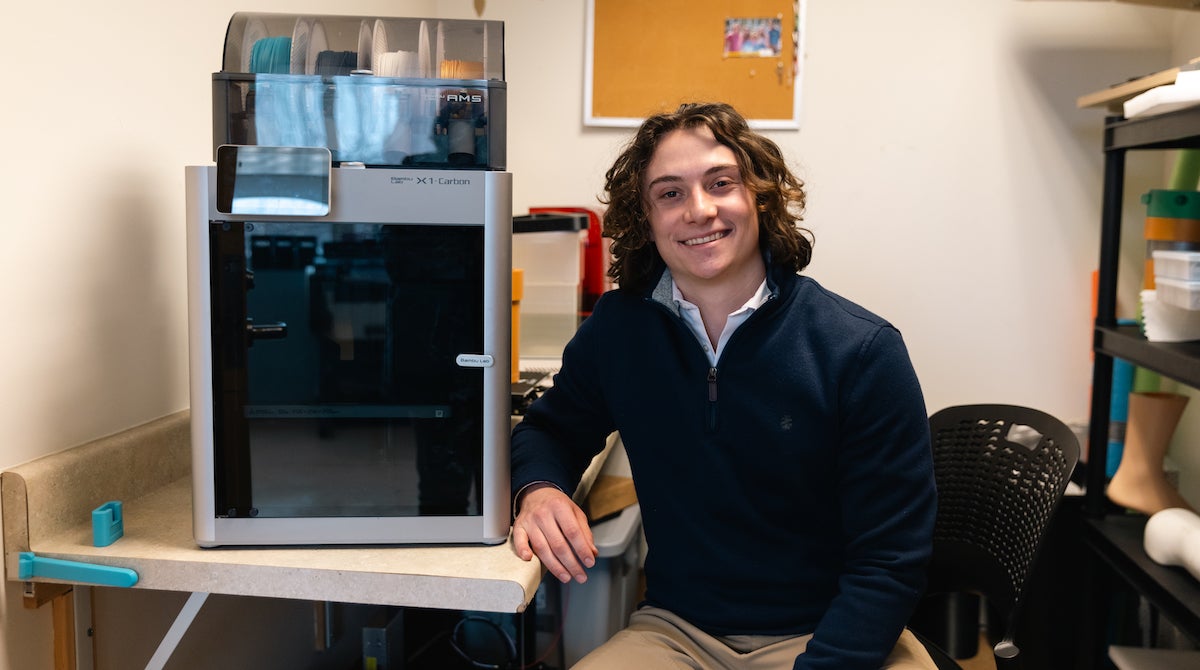A community health education master’s degree gives you a great start on a public health career.
“I’d never spent so much time in fast-food restaurants in my life,” jokes Tara Daly, recalling her time in the Master’s in Community Health Education program at Merrimack College.
It’s not that Daly was eating lots of burgers and fries. Rather, she was gathering research data for a community health education study led by Merrimack professor Juliana Cohen, one of the nation’s foremost public health scholars of nutrition and diet.
“I would count the number of signs in the restaurant that had nutrition information on them,” says Daly, who completed her community health education master’s degree in 2017. “I recorded how much information was on the menu, and how many ads in the restaurant were targeted at kids. I would ask about the nutritional value of certain items, to see if the person taking my order could answer the questions.”
That experience, along with other projects she completed in the community health master’s program, helped prepare Daly for her current job in clinical research at Boston Children’s Hospital.
“I felt really confident going into the workforce,” she says. “The master’s in community health gave me the foundation for all kinds of health education jobs.”
Beyond working in a public health research job like Tara Daly’s, there’s a lot you can do with a community health education master’s degree. Community health educators promote public health and well-being in a wide range of settings, including schools, government agencies, corporations, hospitals, health clinics and nonprofit organizations.
According to the National Commission for Health Education Credentialing (NCHEC), top community health education jobs include:
The U.S. Bureau of Labor Statistics (BLS) projects employment of health educators to grow by about 16 percent in the near future, much faster than the average for all job sectors. “Growth will be driven by efforts to improve health outcomes,” the BLS notes, “and to reduce healthcare costs by teaching people healthy behaviors and explaining how to use available healthcare services.”
“I liked the fact that I was promoting health for the public,” says Bria Gadsden, who spent a year working for the Boston Public Health Commission after earning her community health master’s degree from Merrimack College in 2018. “I feel like I had creative control over my initiatives, whether it was planning a community health education event, allocating the budget, evaluating the results, or anything.”
As the Commission’s wellness program coordinator, Gadsden developed various health education projects involving yoga, fitness, meditation and nutrition. She worked with public schools to educate kids about sugar-free beverages, and with nursing homes to teach senior citizens about sound nutrition.
Both Gadsden and Daly believe their career options were broadened by the versatile curriculum in Merrimack’s community health master’s program.
“It was set up with a combination of different classes,” says Daly. “You had a chance to take some classes in business, project management, communications and some other things I hadn’t been exposed to as an undergraduate. Those are all things you need to succeed in just about any community health education job.”
“The way the healthcare industry is changing,” Gadsden says, “you can do almost anything you want with a master’s degree in community health education.”
“I felt really confident going into the workforce. The master’s in community health gave me the foundation for all kinds of health education jobs.”
― Tara Daly, MS Community Health Education ’17
To talk to someone about the Master of Science in Community Health Education, contact the Merrimack College Office of Graduate Admission.
Create your account to get started. The deadline to apply for the spring term is January 9.
"*" indicates required fields
Sam Barresi ’24 founded Let’s Innovate during his sophomore year and it has already been recognized as one of the top student organizations at Merrimack College.
